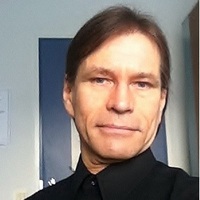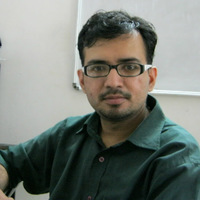
Timo K Latomaa
Academic biography
My current main scientific objectives are: "Theory of mental executive function - multidisciplinary modelling of human activity" and "The logic of clinical psychology - including the logic of psychology as a human science", Former is part of multi-discipline and multilevel modelling of human action. Later is part of study of psychology as a human science and its application.
I am interested in theory of (human, social) science(s); philosophy of science. I have written about ontology of the mind, methodology of psychology and about history of psychology, especially about the beginning of scientific psychology. I am interested in human development, especially human growth and disorders of growth (mental disorders). I have written about pedagogical theory (meta-theory of education, teaching and socialization) from psychological point of view, including meta-theory of psychotherapy and counseling.
My past academic years - but still strong - interests:
- Reconstructive Theory of Science: Normatic-analytic Theory of Science
- Psychology as a Reconstructive Human Science: Mental Experience and Meaning of Action
- Semiotic Theory of Human Mind: Mental experience and subjective meaning;
- Mental sign and Mental Semiosis; Semiotic analysis as method
- Interpretation as Method of Psychology: Interpretation and Understanding
- Psychoanalysis as a Human Science, Psychoanalytic Psychopathology
- Councelling and Psychotherapy as a Pedagogical Action
- Psychological "bildungs" theory and psychological Theory of Pedagogical Action
- Psychology of Science; Psychoanalysis of Science
- Adventure education; Pedagogical Intention, Adventure and Mental Reflection
- Exclusion and Marginalization as mental Phenomenon
Phone: +358 44 3044759
Address: Kasarmintie 18 A 8
FI-90130 Oulu
Finland
My current main scientific objectives are: "Theory of mental executive function - multidisciplinary modelling of human activity" and "The logic of clinical psychology - including the logic of psychology as a human science", Former is part of multi-discipline and multilevel modelling of human action. Later is part of study of psychology as a human science and its application.
I am interested in theory of (human, social) science(s); philosophy of science. I have written about ontology of the mind, methodology of psychology and about history of psychology, especially about the beginning of scientific psychology. I am interested in human development, especially human growth and disorders of growth (mental disorders). I have written about pedagogical theory (meta-theory of education, teaching and socialization) from psychological point of view, including meta-theory of psychotherapy and counseling.
My past academic years - but still strong - interests:
- Reconstructive Theory of Science: Normatic-analytic Theory of Science
- Psychology as a Reconstructive Human Science: Mental Experience and Meaning of Action
- Semiotic Theory of Human Mind: Mental experience and subjective meaning;
- Mental sign and Mental Semiosis; Semiotic analysis as method
- Interpretation as Method of Psychology: Interpretation and Understanding
- Psychoanalysis as a Human Science, Psychoanalytic Psychopathology
- Councelling and Psychotherapy as a Pedagogical Action
- Psychological "bildungs" theory and psychological Theory of Pedagogical Action
- Psychology of Science; Psychoanalysis of Science
- Adventure education; Pedagogical Intention, Adventure and Mental Reflection
- Exclusion and Marginalization as mental Phenomenon
Phone: +358 44 3044759
Address: Kasarmintie 18 A 8
FI-90130 Oulu
Finland
less
Related Authors
Elaine Sharplin
James Cook University
Shirley E Reushle
University of Southern Queensland
Birgit Loch
La Trobe University
InterestsView All (22)




Uploads
Papers by Timo K Latomaa
Osan I kahdessa ensimmäisessä artikkelissa tarkastellaan kokemuksen tutkimusta ymmärtävän psykologian ja ymmärtävän sosiologian näkökulmista. Kolmannessa artikkelissa esitellään tieteenalojen rajat ylittämään pyrkivää subjektitieteellistä lähestymistapaa. Ensimmäisen osan viimeisessä artikkelissa tarkastellaan kielellisyyttä kokemuksen tutkimuksessa.
Osassa II esitellään tutkimuksia, joissa tuotetaan tietoa kokemuksista käytänteiden kehittämisen tueksi. Artikkeleissa kuvataan tutkimuksia, joissa on hyödynnetty esimerkiksi fenomenologista ja narratiivista tutkimusotetta. Kuvatuissa tutkimuksissa on selvitetty psykiatrisessa hoidossa olleiden potilaiden kokemuksia, ammattilaisten ja opiskelijoiden kertomuksia psyykkisestä väkivallasta terveydenhuollossa sekä asiakkaiden kokemuksia psykoanalyyttisesta hoidosta ja hoidon tuloksista. Osan II kahdessa viimeisessä artikkelissa paneudutaan vammautuneen kokemuksen tutkimukseen ja mahdollisuuksien horisontteihin tanssivien poikien ja miesten kokemuksissa.
Osassa III tarkastellaan tieteenpsykoanalyyttisesti kysymystä kokemuksen tutkimuksen tieteellisyydestä sekä pohditaan Juha Perttulan fenomenologisen ajattelun kehityspolkuja tarkastellen, mikä tekee kokemuksen tutkimuksesta fenomenologista.
Toinen "Kokemuksen tutkimus" -seminaari "Kokemus psykologisena käsitteenä ja psykologian tutkimuskohteena" järjestettiin Oulun yliopistossa 11.9.2009. Seminaarin tavoitteena oli yhtäältä koota yhteen kokemuksen tutkijoita keskustelemaan ajankohtaisiin tutkimuksiinsa liittyvistä teoreettisista ja menetelmällisistä kysymyksistä. Toisaalta seminaarin tavoitteena oli tuoda kokemuksen tutkimusta koskevaan keskusteluun 1800-luvun filosofisesta psykologiasta teemoja, jotka ovat olleet tärkeitä ymmärtävän psykologian ja kokemuksen tutkimuksen kehittymiselle 1900-luvulla.
Toisen "Kokemuksen tutkimus" -seminaarin esitelmien pohjalta kirjoitettiin seitsemän artikkelia, jotka on vertaisarvioitu tätä julkaisua varten. Kokemuksen tutkimus II -teoksen aloitusartikkeli kuvaa ymmärtävän psykologian syntyhistoriaa ja taustatraditioita, ja auttaa samalla paikantamaan teoksen muissa artikkeleissa käsiteltyjä teemoja kokemuksen tutkimuksen kentälle. Seuraavissa artikkeleissa käsitellään Hegelin psykologiaa, Schleiermacherin psykologista ymmärtämistä sekä Diltheyn henkitieteellistä ymmärtämisen käsitettä. 1800-luvun saksalaisen filosofisen psykologian teemoista siirrytään kohti akateemisen psykologian
itseymmärrystä sekä tutkijan merkitystä tieteellisessä kokemuksen tutkimuksessa. Teos päättyy teoreettisiin ja metodologisiin tarkasteluihin kokemuksen ruumiillisuudesta ja sen kytkeytymisestä yhteiskunnallisesti tuotettuihin olosuhteisiin ja merkitysrakenteisiin.
"Kokemuksen tutkimus II" ei ole systemaattinen eikä tyhjentävä johdatus ymmärtävän psykologian syntyyn tai kokemuksen tutkimuksen kehittymiseen. Yhdessä "Kokemuksen tutkimus" -teoksen kanssa se kuitenkin täydentää kuvaa kokemuksen tutkimuksen lähtökohdista ja mahdollisuuksista. Näin "Kokemuksen tutkimus II" tarjoaa yhtäältä tukea tukea empiiriseen kokemusten tutkimiseen ja toisaalta jatkaa osaltaan keskustelua tutkimuksen (tieteen)teoreettisista ja metodologisista perusteista.
(Second "Research on Experiences" -seminar "Experience as a psychological concept and as an object of psychological research" took place at the University of Oulu at 11.9.2009. The goal of the seminar was to gather researchers together to discuss about theoretical and methodological questions in their topical research. The other goal of the seminar was to discuss themes of the 19th century german philosophical psychology that seem to be relevant for the development of reconstructive / hermeneutic psychology and more generally to the research of experiences in the 20th century.
Seven peer reviewed articles in the book "Research of Experiences II" develop the themes discussed in the seminar. First article describes origins and traditions of reconstructive / hermeneutic psychology and, thus, helps to locate the themes of other articles into the field of researching experiences. In the following articles authors deal with psychology of G.W.F. Hegel, psychological understanding of F. Schleiermacher, and the concept of understanding in the work of W. Dilthey. From the themes of 19th century philosophical psychology authors turn to the self-understanding of academic psychology and to the role of the researcher in scientific research of experiences. The book ends with theoretical and methodological treatises that examine the corporality and societality of experiences.
"Research on Experiences II" is not a systematic nor comprehensive introduction to the origins and traditions of reconstructive/ hermeneutic psychology. Together with the earlier book "Research of Experiences. Meaning, Interpretation, Understanding" it, however, enriches our conception of the starting points and possibilities of researching experiences. Thus "Research on Experiences II" provides support for empirical research of experiences and continues the discussion about theoretical and methodological grounds of this research.)
Sisällys
(Contents)
Timo Latomaa
Ymmärtävä psykologia. Syntyhistoria ja taustatraditiot
(Reconstructive / Hermeneutic Psychology. Origins and Traditions)
Kari Väyrynen
Hegelin psykologia ja sen myöhempi vaikutus
(Hegel's Psychology and it's After-maths)
Mari Mielityinen-Pachmann
Schleiermacherin psykologinen ymmärtäminen
(The Concept of Psychological Understanding in the Work of Friedrich Schleiermacher)
Minna Lumila
Wilhelm Diltheyn henkitieteellinen ymmärtämisen käsite
(Human-Scientific Concept of Understanding in the Work of Wilhelm Dilthey)
Juha Perttula
Tutkija – tieteellisyyden uhka vai mahdollisuus. Historiallinen näkökulma psykologiaan tieteenä
(Researcher – a Threat or a Possibility for the Scientific Endeavour. Historical Approach to the Psychology as a Science)
Satu Liimakka
Ruumis, kokemus, muutos. Ruumiinkokemus Merleau-Pontyn ja Bourdieun avulla tulkittuna
(Body, Experience, Change. Body Experience interpreted with Merleau-Ponty and Bourdieau)
Teemu Suorsa
Kokemuksen yksilöllisyys, yhteisyys ja yhteiskunnallisuus. Subjektitieteellisestä kokemustutkimuksesta
(Individual, Communal, and Societal in the Experience. On the Subject-Scientific Research on Experiences)